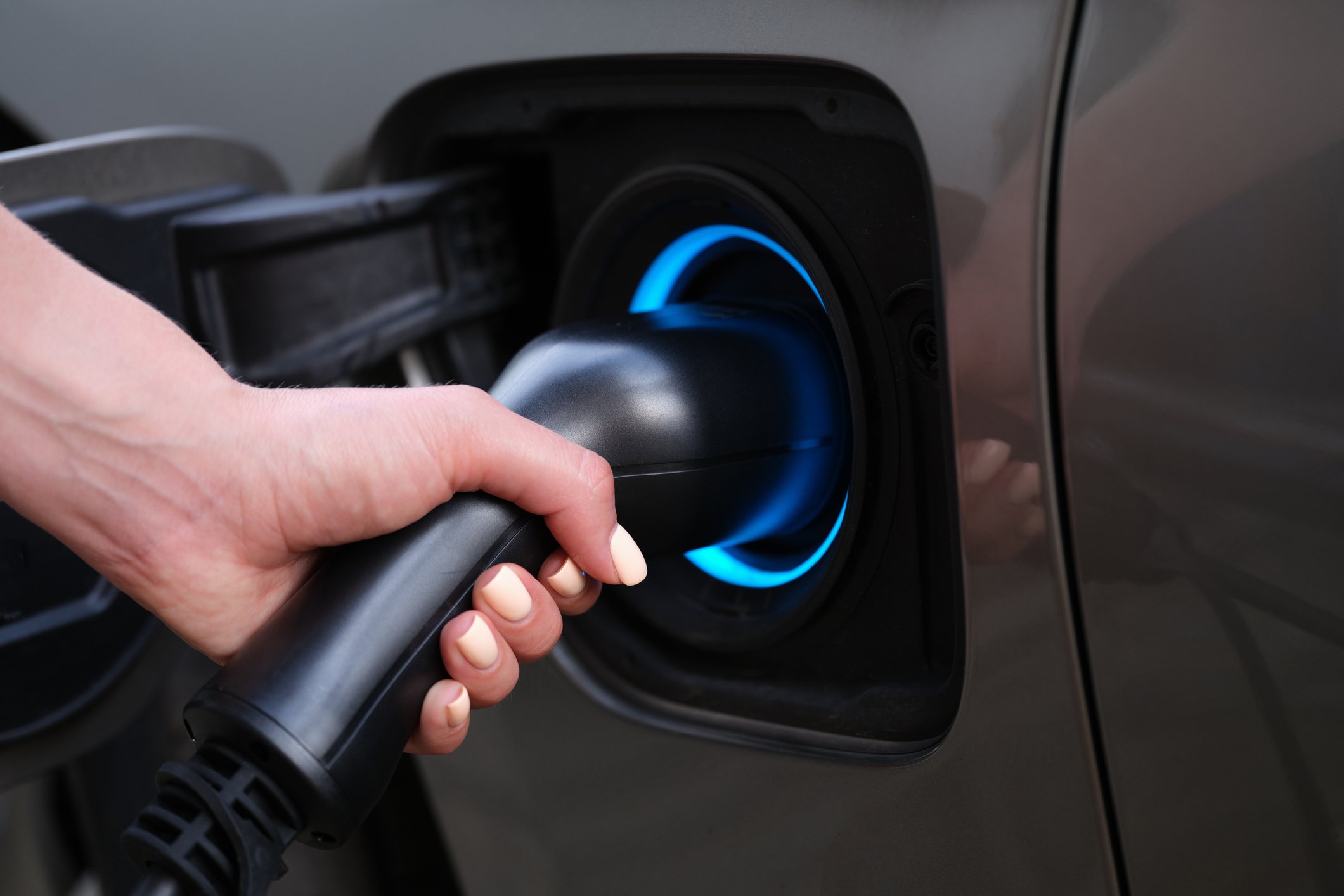The U.S. auto industry expects to cross the 16 million unit mark in the current year. This is good news for automakers. However, concern over rising air pollution is increasing, putting pressure on governments to take action. The state of California has an ambitious target of getting 1.5 million zero-emission vehicles on the road by 2025. This can be a big opportunity for automakers that are working on manufacturing eco-friendly cars.
Toyota (TM 0.90%) is preparing for a very daring launch with its first hydrogen-powered car, the Fuel Cell Vehicle (FCV), unveiled as a concept recently and which is expected to hit the U.S. showrooms in a year's time. Will the Japanese automaker finally get the benefits of spending billions on R&D in this space over the past two decades?

Toyota FCV Concept. Source: Toyota
What Toyota is promising?
Toyota started fuel-cell-technology development two decades back and started prototyping in America in 2002. It revealed its concept car at the Tokyo Motor Show last November, and recently showcased a test model at the 2014 Consumer Electronics Show at Las Vegas. The car is scheduled to come to the showrooms in 2015.
It will be a four-door sedan featuring the latest fuel-cell technology that creates electricity by combining hydrogen and atmospheric oxygen. This means that it creates practically no emissions other than some harmless water vapor. The car's engine is powered in the same way as that of electric vehicles. With its tanks full, the FCV can run more than 300 miles.

A look at fuel-cell technology. Source: Toyota
The FCV's biggest advantage over electric cars will be that it will barely take three to five minutes to recharge compared to electric cars, which take around two to six hours to recharge. The sedan can also speed up to over 100 mph, and can take as less as 10 seconds to gather speed from zero to 60 miles per hour. It's also encouraging that the company has achieved 95% cost reduction since 2002, when it first began prototyping in America.
The lead Japanese carmaker is making the effort to develop the basic infrastructure required for hydrogen cars and is a member of the California Fuel Cell Partnership, or CFCP. The CFCP is an association of automakers, energy companies, universities, and the California Energy Commission which has identified 68 locations in California for setting up fueling stations which can hypothetically serve around 10,000 potential drivers. The state proposes to increase the number of fuel stations to 100 through the next decade.
Will the market for hydrogen cars evolve?
Several industry experts think that hydrogen-fuel-cell cars could be the next driver of the global auto industry to take the spotlight off of electric vehicles. However, the question remains whether there will be decent demand and a market big enough to support hydrogen cars in the foreseeable future.
Hydrogen cars can only be fueled at specific stations, which calls for a massive investment in infrastructure. At present, the U.S. has just 53 fuel stations, of which 21 are in California. This probably explains why Toyota has chosen the Golden State to be its launching pad. Also, the state has earmarked $200 million for setting up additional 20 stations by 2015, 40 by 2016, and close to 100 stations by another 10 years. The progress on the infrastructure front will have a big impact on the evolution of the hydrogen car market.
Another factor that would have a big bearing on the evolution of this industry is the pricing of the cars. Toyota said that a "Moore's Law" price curve would be applicable for hydrogen-powered vehicles. As per the law, a hydrogen vehicle produced in 2007 would cost around $1 million, while manufacturing it in 2015 would need an outlay of just $50,000, which would be reduced to $25,000 by 2020. The response that the FCV will receive will be critical in gauging the fate, and also the possible pain-points, of this nascent niche in the industry.
Toyota is not the only one working in this arena. Domestic rival Honda (HMC 0.85%) and the Korean carmaker Hyundai (HYMTF +0.00%) are also exploring opportunities in this space. Honda's first hydrogen model, the FCX Clarity, is already on California roads. Currently, the Japanese carmaker leases these cars out at a monthly rental of $600. Hyundai, on the other hand, is developing the hydrogen version of its SUV flagship, the Tucson. Both companies are slated to begin mass production of their hydrogen cars starting 2015.
Parting thoughts
Years back nobody thought that cars could run on anything other than gasoline, but technology innovations have proved that electric and hybrid cars are possible. While we may not bump into a hydrogen car at every corner in the near future, with the work that has gone into the development of this technology hydrogen cars may have a viable future.







